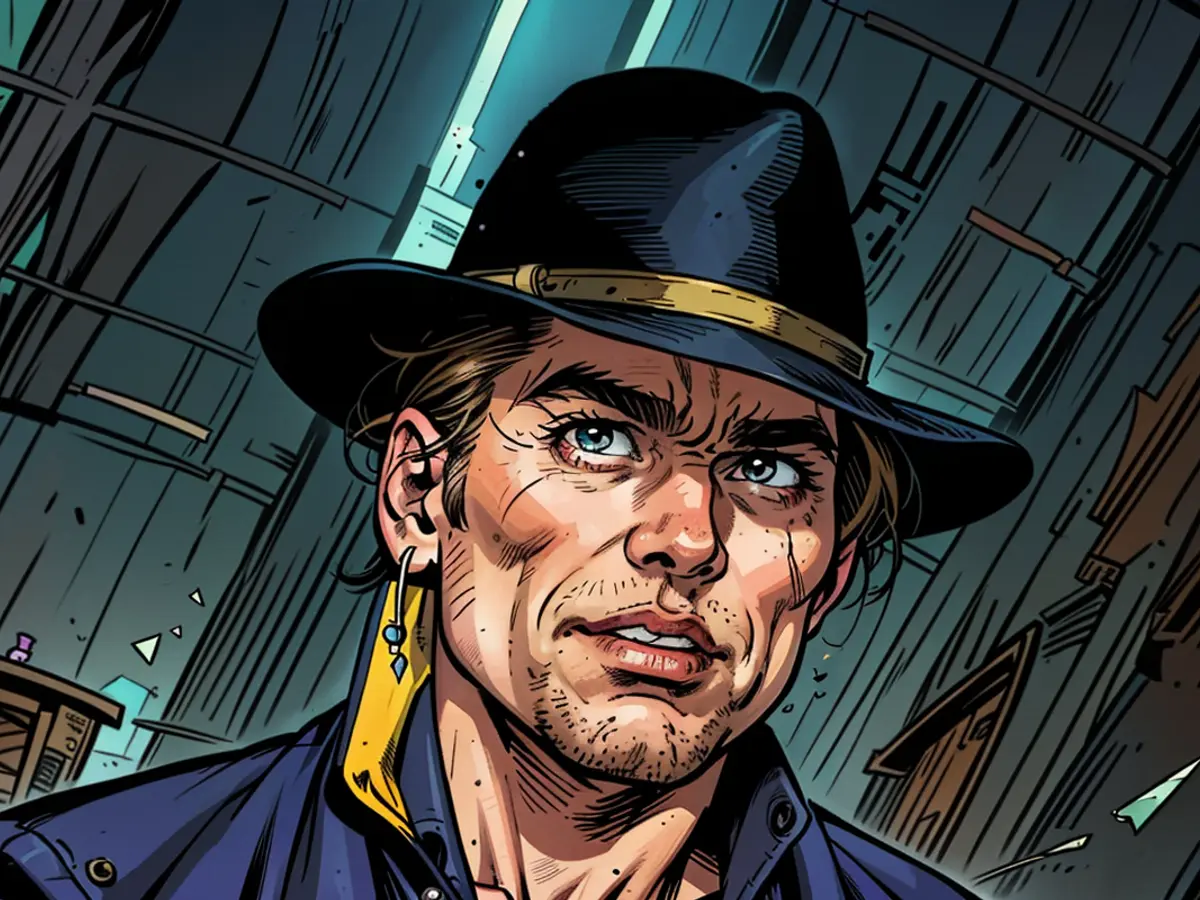Band with Rio Reiser - Co-founder of Ton Steine Scherben: R.P.S. Lanrue passed away
With "Macht kaputt, was euch kaputt macht" or "Keine Macht für niemand," the band Ton Steine Scherben provided the soundtrack for the revolutionary part of the 70s. The musician and co-founder of the Politrockband, Ralph Peter Steitz, also known as R.P.S. Lanrue, passed away. He died on a Sunday in Berlin in the circle of his family at the age of 74, as his wife confirmed to the German Press Agency in Berlin. Before that, "Die Tageszeitung" reported. Chaos was part of the band and the lives of the musicians. The rock band, led by lead singer Rio Reiser, first performed together on the island of Fehmarn in 1970. The Love-and-Peace-Festival 1970 was supposed to be a kind of German Woodstock. To the musicians' dismay, the cash box was missing. The Politrockers played "Macht kaputt, was euch kaputt macht." Reiser incites the fans. The first single unfolds its raw power: In the general chaos, the stage goes up in flames.
"That was fantastic," Lanrue recalled in a conversation with the DPA a few years ago. He had founded Ton Steine Scherben together with the 1996 deceased Reiser.
R.P.S. Lanrue met Rio Reiser in 1966
Ralph Peter Steitz (Lanrue) and Ralph Christian Möbius (Reiser) had a lot in common. They met in the Hessian Nieder-Roden in 1966. Lanrue needed a guitarist and let Reiser play a Stones song. He sang it too. As Beat Kings and De Galaxis, they played covers and their first own songs, allowing themselves to be influenced by the Stones.
Reiser moved to West-Berlin, and Lanrue followed shortly thereafter. For the theater piece "Rita und Paul," they wrote "Macht kaputt, was euch kaputt macht" in 1969. The song had a direct connection to the play. "Every evening, a television set with a right-wing extremist was smashed," Lanrue recalled. "We then played 'Macht kaputt'."
Shortly thereafter, Reiser and Lanrue, along with bassist Kai Sichtermann and drummer Wolfgang Seidel, founded Ton Steine Scherben. Over the years, there were numerous additions, departures, and changes in the lineup.
Ton Steine Scherben and the sound of the revolt
The original version of "Macht kaputt, was euch kaputt macht" has almost two minutes of intro, after slightly spherical first sounds, an increasingly aggressive crescendo with an unmistakable guitar riff from Lanrue follows. "When I played that, the mood was immediately there," the musician described the heated atmosphere at the concerts.
The Scherben delivered the sound of the revolt on three albums: "Ich will nicht werden, was mein Alter ist" symbolized the generational conflict, the "Rauch-Haus-Song" was the accompaniment for house takeovers, "Keine Macht für Niemand" stood for the desire for freedom and anarchy.
Much of the fight against the Establishment took place in Kreuzberg. In divided Berlin, Kreuzberg was like a separate part of the city from the rest of the West, a battleground for Ton Steine Scherben. "The invention of Kreuzberg" is, according to "Die Tageszeitung," the "historical feat of Ton Steine Scherben."
The band earned meager wages
At many events, the Scherben were supposed to perform. The wages were meager, organizers expected solidarity from the band. Reiser, Lanrue, and other musicians lived at the "T-Ufer," a commune at the Tempelhofer Ufer. Open house. Much visitors, uninvited intruders, police raids.
All that was too much for Reiser and Lanrue in the mid-70s, with a small Scherben community they moved to Fresenhagen in North Friesland. There, the fourth album "IV" was created, which many Scherben fans hardly know. "My favorite album," Lanrue said.
In the founding year of Politband, the Red Army Faction also took shape. Visits from RAF members to the Berlin Scherben-Commune were not uncommon. "They came and went among us," recalled Lanrue. Nevertheless, from the musician's perspective, "not much" RAF was in Ton Steine Scherben. "Despite meeting many protagonists, we always made our own program," Lanrue said. Armed struggle and bare terror did not belong to that.
- Ralph Peter Steitz, better known as R.P.S. Lanrue, and Ralph Christian Möbius, known as Rio Reiser, formed a strong bond after meeting in Nieder-Roden, Hesse in 1966.
- As Beat Kings and De Galaxis, Lanrue and Reiser performed covers and their own songs, heavily influenced by The Rolling Stones.
- Reiser moved to West Berlin, and Lanrue followed soon after. They wrote the song "Macht kaputt, was euch kaputt macht" for the theater piece "Rita und Paul" in 1969, which was directly linked to the play's storyline.
- Shortly after, Reiser, Lanrue, Kai Sichtermann, and Wolfgang Seidel founded Ton Steine Scherben, marking the start of their band's music revolution.
- In the mid-70s, Reiser and Lanrue, along with a small Scherben community, moved to Fresenhagen in North Friesland, where they created the album "IV," which Lanrue considered his favorite.
- Despite visits from Red Army Faction members to the Berlin Scherben-Commune, Lanrue noted that the RAF had minimal influence on Ton Steine Scherben, and they always maintained their own agenda.







